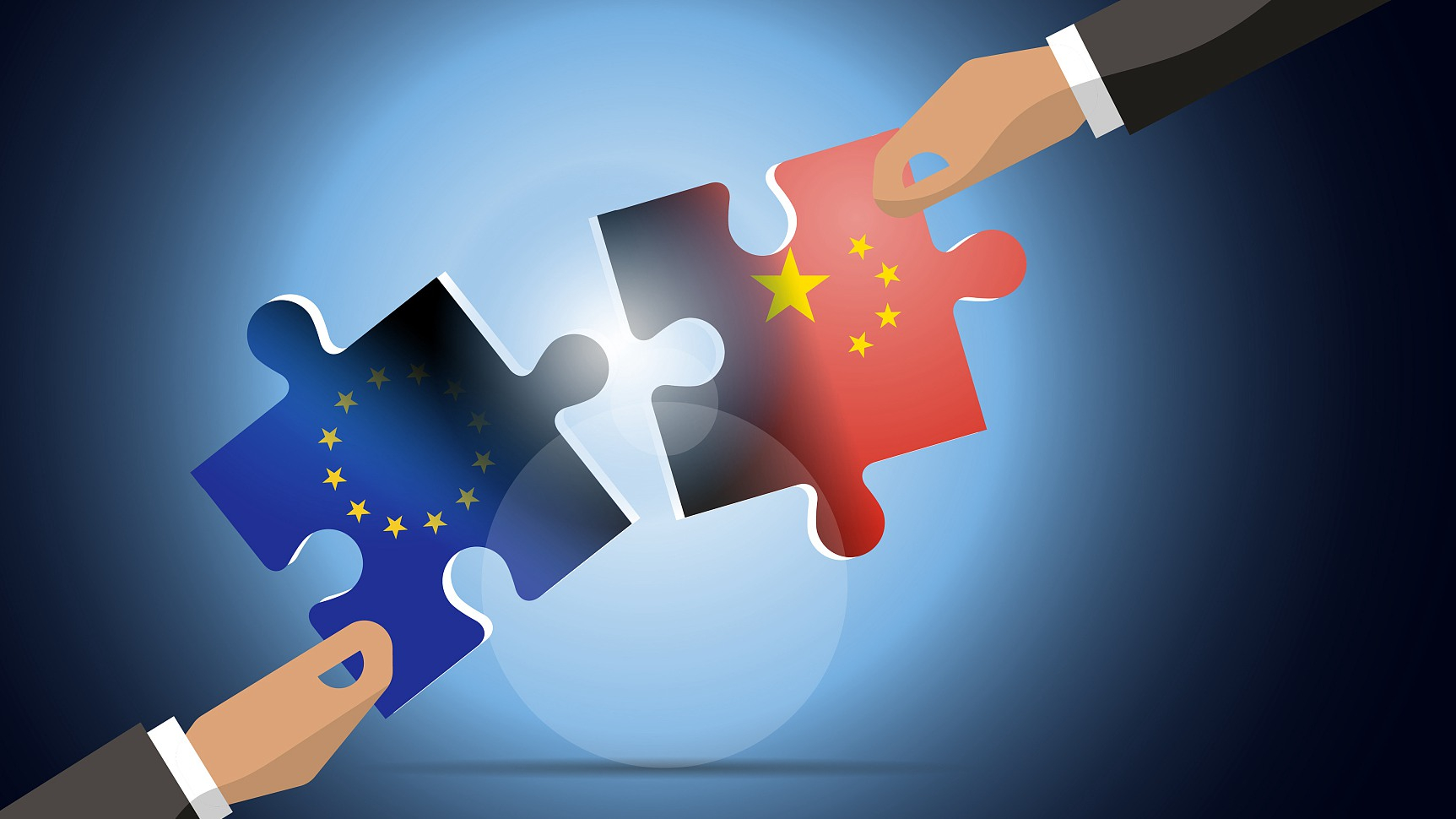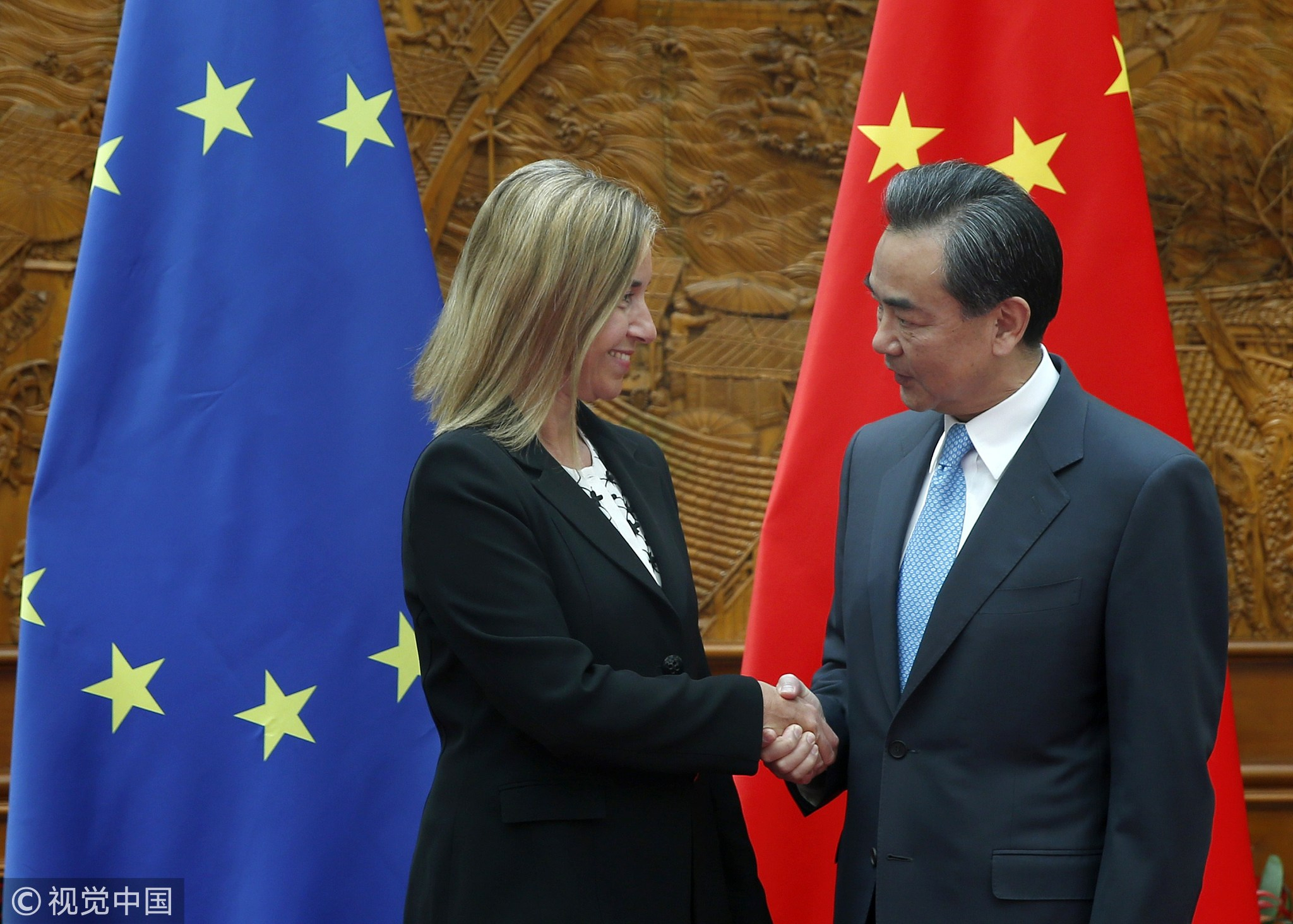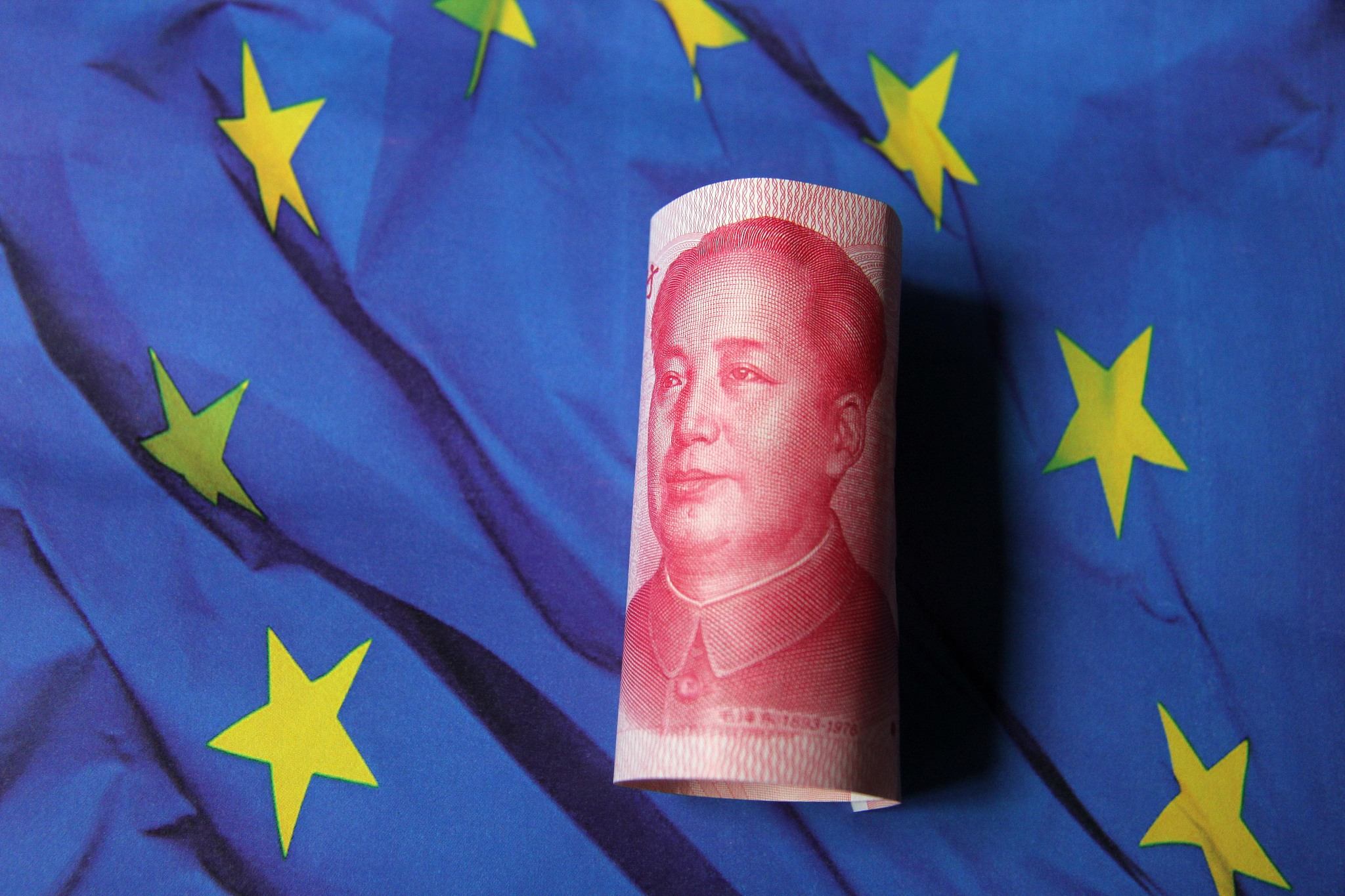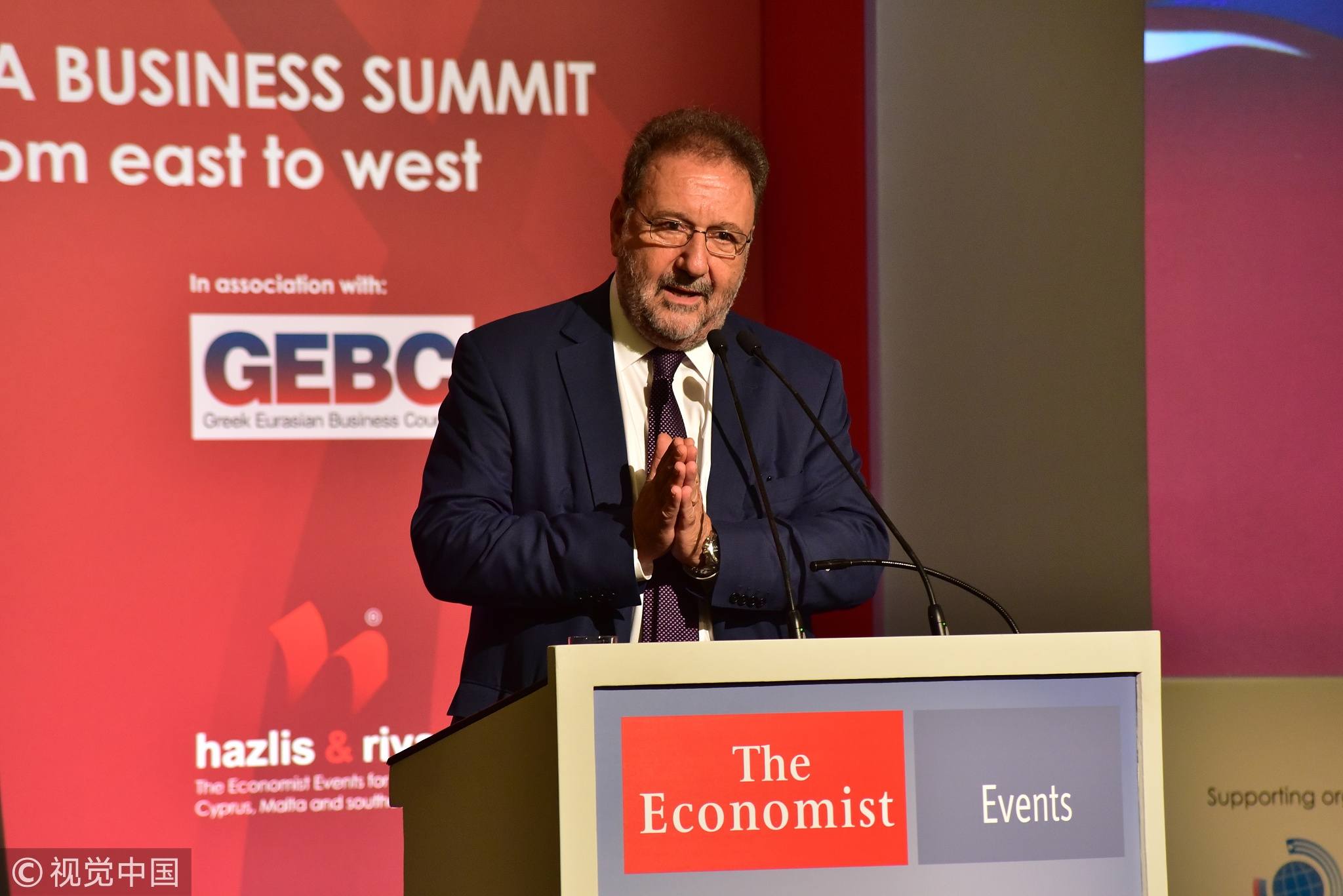
Opinions
21:01, 20-Dec-2018
China-EU relations in 2018: supporting multilateralism with common interests
Updated
20:48, 23-Dec-2018
Cui Hongjian

Editor's Note: With 2018 drawing to a close, it is time to review the many ups and downs that occurred in the international community. Among others, Sino-EU bilateral relations have been thrown into the spotlight, with the two making joint efforts to promote multilateralism. Cui Hongjian, director of the European Studies of the China Institute of International Studies, shares his insights with CGTN.
When looking back at China-European Union (EU) relations in 2018, it could be summarized by such keywords as common interests, common positions, and mutual adaptation with a shared future.
To make a bigger cake of common interests
Despite the rise in protectionism and the increasing uncertainty and downward pressure on the world economy and trade, China-EU economic and trade cooperation has achieved dazzlingly achievements: bilateral trade reached more than 500 billion U.S. dollars in the first 11 months, a year-on-year increase of 13 percent; Europe continues to be the main destination for Chinese overseas investment. According to European statistics, China's mergers and acquisitions into Europe in the first half of this year alone reached 20 billion U.S. dollars.
Europe has also become the main destination for Chinese leaders. Chinese President Xi Jinping and Premier Li Keqiang have visited Germany, Belgium, Spain and Portugal this year and highlighted the importance of China-EU relations.
The year 2018 has also witnessed the China-EU Tourism Year. Europe has become the second largest destination for Chinese tourists, with more than 600 flights a week between China and Europe.
The close economic and trade ties, political interactions and personnel exchanges have made the China-EU partnership more particularly rare and valuable in the pattern of the world economy and international relations that are experiencing the cold winter. Both China and the EU should cherish it more.

European Union foreign policy chief Federica Mogherini (L) shakes hands with Chinese State Councilor and Foreign Minister Wang Yi in Beijing, May 6, 2015. /VCG Photo
European Union foreign policy chief Federica Mogherini (L) shakes hands with Chinese State Councilor and Foreign Minister Wang Yi in Beijing, May 6, 2015. /VCG Photo
Upholding the multilateral order jointly
The driving force for China and the EU to maintain full cooperation between them under the pressure of protectionism and isolationism is that both sides actively maintain the multilateral and rule-based order which benefit both sides. The EU and China are the first and second largest trading partners of the U.S. and the two largest sources of U.S. trade deficits.
Therefore, when the U.S. government began to impose tariffs on imported goods unilaterally in the name of “reduce trade deficits”, China and the EU were at the forefront of this protectionist measure.
According to U.S. statistics, the U.S. trade deficit with China and the EU in 2017 was 375 billion and 151 billion U.S. dollars respectively. If the U.S. government achieves the goal of trade balance, it means that China and the EU must either increase the same amount of imports from the U.S. or reduce the same amount of exports.
This will be a huge blow to China and the EU, which are both export-oriented economies, and it will be more difficult to accept for China and the EU to resolve the trade balance issue by resorting to unilateral taxation rather than bilateral or multilateral negotiations.
In addition to the potential loss of economic interests, another threat posed by protectionism and unilateralism to China and the EU is that the American behaviors are continually challenging the existing multilateral order and rules including the World Trade Organization (WTO). Dissatisfied with the WTO rules, the U.S. not only put the dispute arbitration mechanism in shackles by obstructing the selection of appeal judges but also threatened to withdraw from this global multilateral trade arrangement.
Therefore, whether it is for the consideration of safeguarding economic rights or defending the global trading system and rules, in the face of U.S. protectionist measures, China and the EU have chosen to jointly maintain multilateralism and free trade.

VCG Photo
VCG Photo
This common position is clearly reflected in the joint statement issued by the leaders of China and the EU after the 20th China-EU leaders' meeting in Beijing in July. "The two sides are firmly committed to fostering an open world economy, promoting trade and investment liberalization and facilitation, resisting protectionism and unilateralism. Both sides strongly support the rule-based multilateral trading system with the WTO as its core and were committed to complying with existing WTO rules."
The consensus between China and the EU is reflected in the actions. When the U.S. unilaterally imposed a steel-aluminum tax on Europe and launched a trade war against China, both China and the EU chose to fight back. The two sides also set up a deputy ministerial-level working group and work closely on the issue of WTO reform.
To adapt to each other and create a shared future together
As two partners with different systems and development levels, there are also differences and contradictions between China and the EU.
Since it raises the principle of reciprocity and fairness in its policy document towards China in 2016, the EU has put forward higher requirements for China in terms of market access and fair trade, and some requirements clearly ignore the reality that China is still a developing country compared with the EU. So a one-sided demand for reciprocity between China and the EU is clearly impractical.
In order to force China to make concessions on trade and investment issues, the EU has upgraded its trade defense system in a targeted manner in 2018, and the work of establishing a foreign investment screening mechanism is nearing completion as well.
Frankly speaking, with the development of China, the EU has already felt the competition from China in certain sectors over the last few years. It is understandable that the EU is worrying about China's strong competitiveness arising from the combination of its huge production capacity and technological capabilities.

Stergios Pitsiorlas, Deputy Minister of Economy and Development of Greece, gives his speech in the EU-Eurasia-China Business Summit, October 9, 2017. /VCG Photo
Stergios Pitsiorlas, Deputy Minister of Economy and Development of Greece, gives his speech in the EU-Eurasia-China Business Summit, October 9, 2017. /VCG Photo
To dispel the doubts of the European side, China has not only strengthened policy communication with the EU but also proposed that both sides can achieve full industrial chain cooperation. Moreover, on the basis of continued interoperability and complementary advantages, both sides could also join forces to develop the third party markets outside China and Europe.
So far, China has already carried out connectivity platform with the EU, signed a third party cooperation statement and the Memorandum of Understanding of cooperation in the Belt and Road Initiative with a number of EU countries. As time goes by and more pragmatic cooperation projects generate benefits, it is believed that the EU as a whole will understand and accept the sincerity of China's insistence on expanding common interests and rationally managing competition between the two sides.
Currently, Europe is facing huge political, economic and social changes, and the European integration process is also experiencing the pain of reform. Whether it is the Brexit or the rise of populism in some countries, it will have an impact on China-EU cooperation. At the same time, the world is undergoing profound changes. How to find its own proper and advantageous position in change and seek reliable partners is a huge test that China and Europe must face.
No matter what differences exist between China and the EU and no matter what challenges the road ahead, it is confident that China and the EU can withstand this test and regard each other as reliable partners with deep economic and trade cooperation, high political strategic mutual trust and frequent people to people contact.
It is believed that China-EU cooperation is not only beneficial to each other but also conducive to world prosperity, stability and peace. Let's look forward to a more promising 2019 for China and the EU.
(If you want to contribute and have specific expertise, please contact us at opinions@cgtn.com.)

SITEMAP
Copyright © 2018 CGTN. Beijing ICP prepared NO.16065310-3
Copyright © 2018 CGTN. Beijing ICP prepared NO.16065310-3